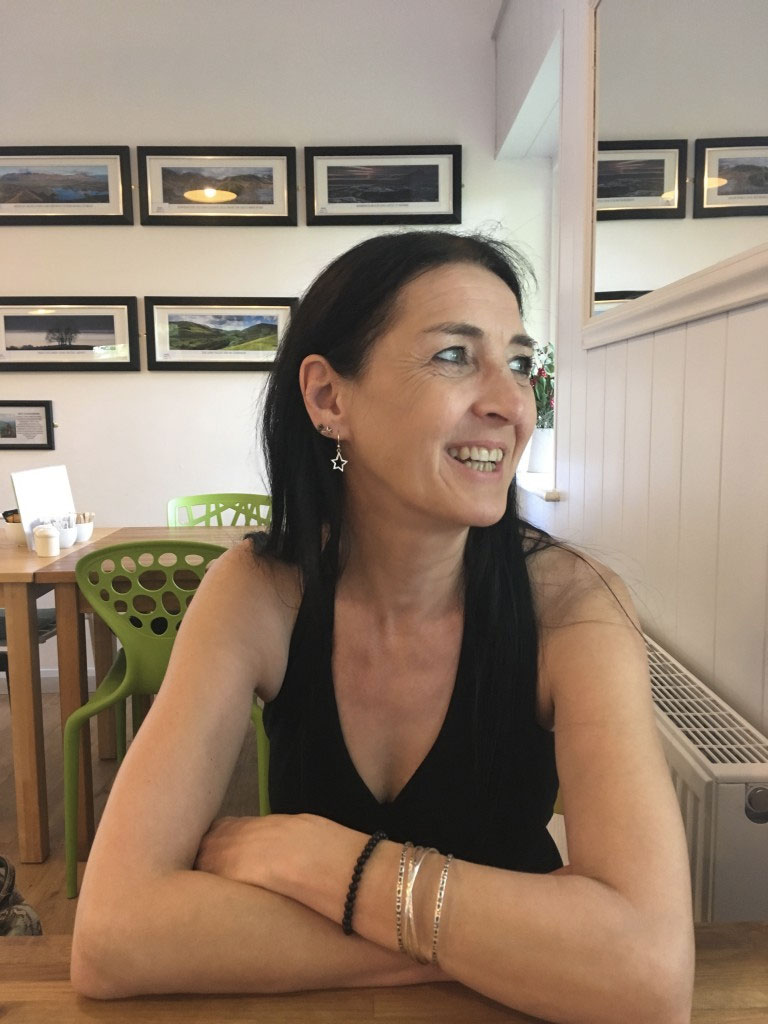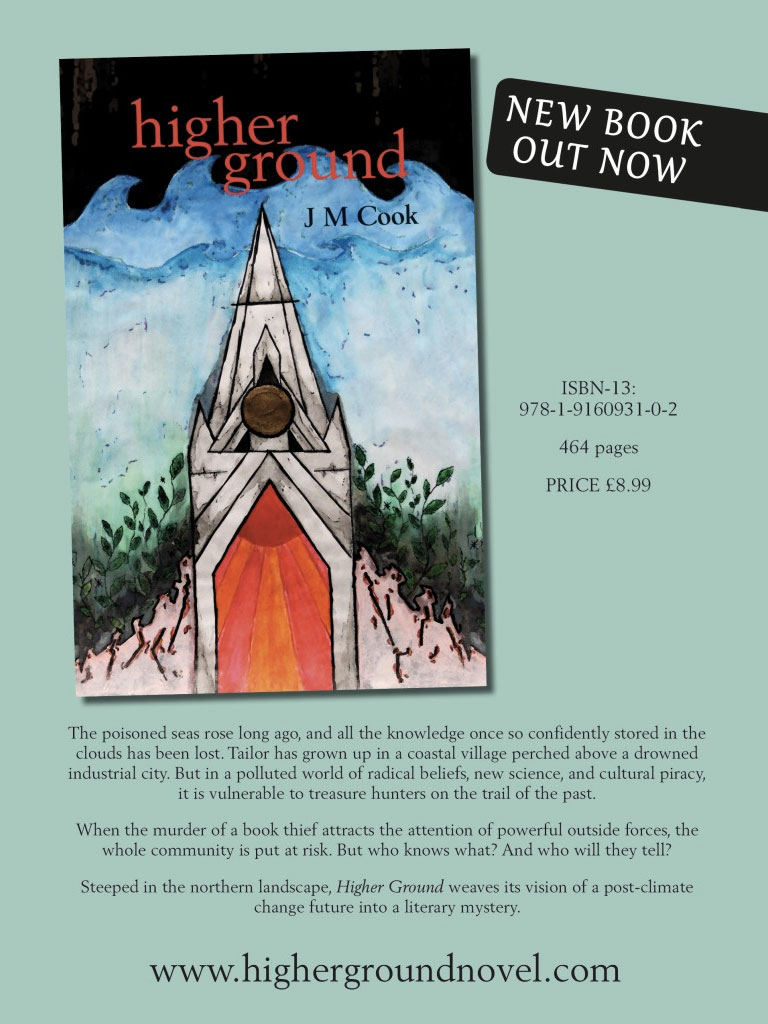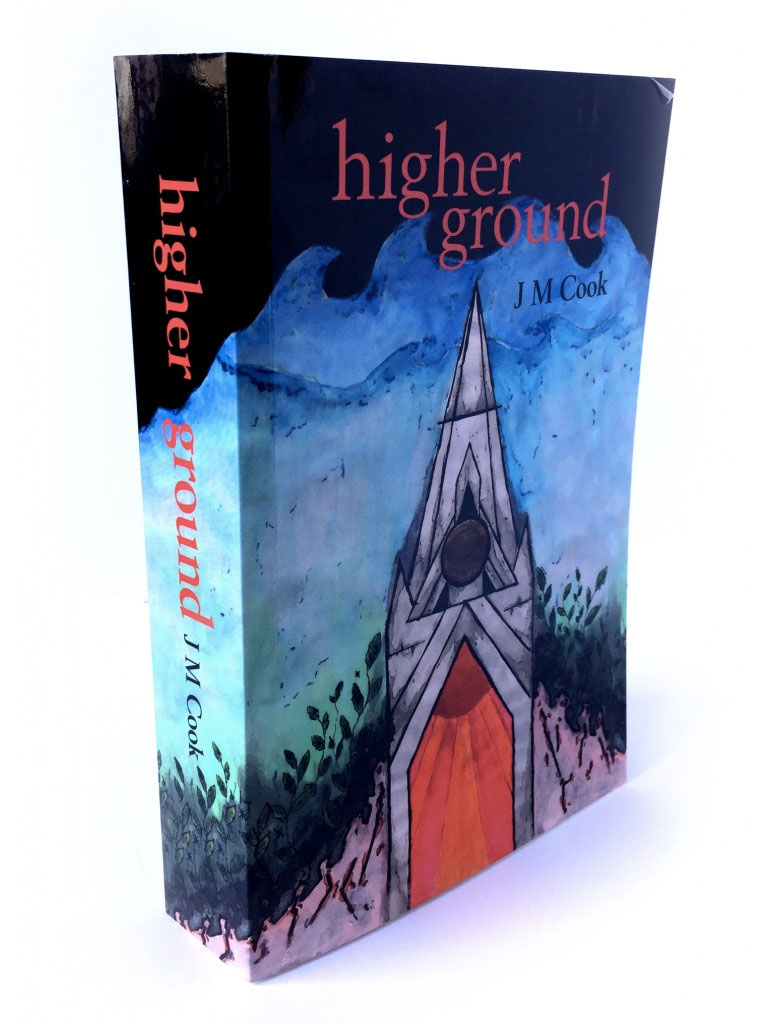An Interview With Author, Julie Cook
We recently had the pleasure of working with the extremely talented Julie Cook on her novel Higher Ground. She sat down to have a chat with us about writing, navigating the publishing industry as a self-published author, and even sharing some valuable tips for aspiring writers.
Julie is a Lancashire-based author of poetry and short stories. Growing up in east London and Essex, around the Thames estuary, she has always been fascinated by coastal landscapes and their shifting identities. She moved north to Lancashire 25 years ago, and has since been intrigued by its historical past, the shape of its post-industrial present, and the challenges of its future. Higher Ground is her debut novel, and is available now from https://www.highergroundnovel.com/
What inspired you to write Higher Ground?
I’ve always loved stories based in real places, or versions of real places, where the landscape is important, and it matters where the story takes place, as much as what happens in it – whether that’s classic children’s fiction like Swallows & Amazons set in the English Lake District, or more contemporary work like Sarah Moss’s Night Waking (Hebrides), or Margaret Elphinstone’s Voyageurs (Canada). I’ve also always been drawn to post-apocalyptic fictions, where the authors explore what society might be like after an epidemic, or a nuclear catastrophe, or now, climate change… a lot of these novels are broadly ‘science-fiction’, as they rest on a scientific idea, but they use that to get to a place where they can tell their story, rather than concentrating on the technological aspects.
Building on that, is there a particular reason you chose to set Higher Ground in the future?
Yes – so I liked the idea of mixing up the things I’ve just talked about. I’m not the first one to do this of course, but that meant that because I wanted to set the story in the Lancashire town where I live, the future was the only place it could be set, if I was going to turn it into an island as a result of climate change and flooding.
The cover of the book is absolutely stunning, could you tell us a bit more about how it came to be?
The cover art is a watercolour painting by Ewan Mulligan, who is also based in Lancashire and knows the area I am writing about well. I gave him a brief which included lots of random ideas and images and links to songs and videos which had influenced the feel of the novel aesthetically. And then he came up with a few concepts, I liked one of them, and he took it from there. So I didn’t really know what to expect when I saw the final piece, and for me, it’s amazing. It’s based on the church of St Ignatius in Preston, which is central to the novel. There aren’t meant to be any clues to the story in the picture, but readers might find some for themselves. It’s great to be the author though, because I get to keep the original painting on my wall now!
What was the writing process like?
I loved the writing process. For me, it’s a sanctuary. This was always going to be a novel, and it’s great to just have the freedom to create a complete world. But after a while it does take on a life of its own, because you get so involved in it, and look for (and find!) inspiration everywhere. I think if you want to write you just have to get on with it to be honest, and run with whatever ideas you have – writers write – you might need to throw away or recycle a lot before you get what you wanted, but that’s how you find your voice, and learn how to be the kind of writer you want to be. No-one else can be that… I’ve just tried to write something I really wanted to read.
Why did you choose to publish independently?
Well, for a long time I wanted to publish traditionally, and in fact, a few times I did say that the one thing I would never do was self-publish, but things change. Once I had a good draft I wasted a year of my precious writing time preparing submissions to agents (and some publishers), who all want different combinations of synopses and outlines, and often even ask for things like blurbs as well. Most of them never even replied, including those who said they responded to everything. I kind of lost faith in that system, although I was getting really good feedback from readers, and becoming more confident about my novel. Then I was introduced to a contemporary novelist I rate very highly, and we had a really useful discussion about contemporary publishing, and how independent publishing has changed, and I thought, well, if people can release their music independently, then I can do this.
The benefits of independent publishing include things like control over what your book looks like, how it is marketed, and in fact what it is like – we have all heard stories of writers being asked to rewrite their whole book from a different perspective, or pitch it as a YA novel when it isn’t. On the downside, publishing is a whole new world to most writers. There’s a lot to learn, and do you really want to design your own cover, or decide on a marketing strategy, and can you afford to fund the first print run before you have any orders? It is a risk.
Would you recommend self-publishing to other authors who might just be starting out?
I have to say that I would have preferred to publish traditionally – but no-one offered me a contract, and my priority was to get Higher Ground out, and see what happens. If you choose the self-publishing route, then I would recommend finding a good, established company which comes well-recommended to help you – a company like Carnegie Scotforth knows what it is doing, and can give you all kinds of advice and ongoing support. And it does not cost more than choosing a less-established company. Higher Ground has only just been published of course, but so far, I am very happy with the decisions I’ve taken to set up my own imprint (Edith Williams Press), and maybe support other aspiring women writers.



